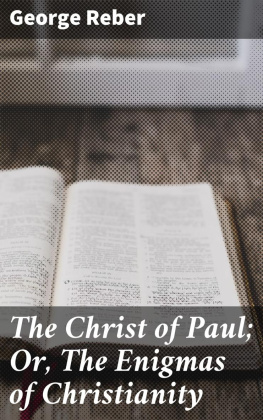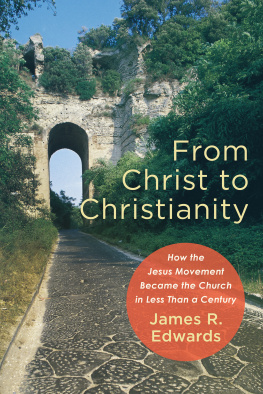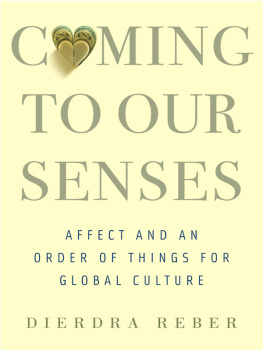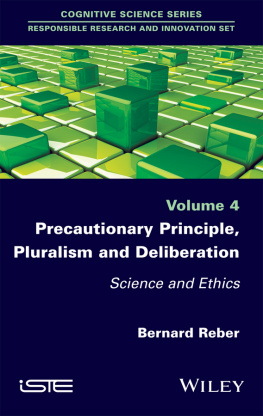CHAPTER I.
Table of Contents
Death of Stephen.Conversion of Paul.His retirement to
Arabia and return to Damascus and Jerusalem.
Let the reader imagine that he is in Jerusalem, in Judea, about the year A.D. 34. There is unusual tumult in the vicinity of the Temple. A large crowd has gathered, and, stirred up by some strong provocation, is swayed like the billows in a storm. As we approach, we see a young man, who is trying to raise his voice above the din. There is something very striking in his looks. He is pale, but firm. His eyes gleam with an unearthly light. As the crowd surges and threatens, he is calm. His thoughts and looks are directed more to Heaven than Earth.
But in this crowd there is a young man of an entirely different stamp. He is excited and angry. His eyes are red with rage, and he is seen moving among the crowd like an incendiary. The crisis came, and poor Stephen stood first on the list of Christian martyrs. This little bleared-eyed, angry man is not yet satisfied. Like the tiger that has tasted blood, he thirsts for more. He goes about Jerusalem like a madman. He fills the prisons with men and women who believed with Stephen. When he had done all the injury he could in Jerusalem, he asked and received permission to go to Damascus on a like mission. On his way, while he is breathing out threatenings and slaughter, he is struck down in his mad career. He saw in it the hand of God. Everything is changed in a moment. The fiery stream of burning lava, which rushed in one direction, now turned and ran with equal violence the other way.
Philosophers may differ as to what befell Paul on his way to Damascus; but as for himself, he never doubted. The Christ that he persecuted had spoken to him. His faith in what he saw in his vision he bore in his bosom, as he did his heart; and in a life of toil, suffering, and sorrow, he clung to it to the end.
We can hardly tell what were the feelings of Paul when he awoke to consciousness, because we cannot judge him as we would other men. He had raised his hand against the Son of God, and now, after a severe reproof, he was appointed by him to be his special minister on earth. Paul did just what we might suppose he would. He withdrew from the world, avoided Jerusalem, and, as he says, went into Arabia. There, alone, he meditated over the wonderful scenes through which he had passed. The more he thought, the more he believed he had talked with Christ, the Son of God, and the more he believed he had been selected to spread his Gospel throughout the earth.
Once convinced that his vision was a reality, it was natural for him to make himself believe that these visions were repeated; and through life, in all his acts and movements, he believed he was under the guidance of the same hand that smote him on the plains of Damascus. He goes from place to place as a Spirit from above directs him, and when he speaks he speaks not for himself, but for Him who sent him, Positive and overbearing by nature, he imagines himself to be the minister of the Son of God, and becomes intolerant, vain and exacting. All his ideas are crystallized, and will not bend or yield.
As he was specially selected to preach, he believed in the doctrine of election. When he believed at all, he believed too much; for it was his nature to overrun. He had witnessed Christothers had not; but, in the absence of proof, they must substitute faith. Works are nothingfaith everything. What he saw and believed, others must believe without seeing.
His theology, from his natural temperament and the circumstances of his conversion, took an austere cast, which made the relation between man and the Creator that of guardian and ward. God himself, in the mind of Paul, is almost hideous. Some are given over to damnation before they are born; while others are destined to be saved before they have had a chance to sin.
It is difficult to tell whether the religious faith of Paul was fully fixed and determined before he left his retreat in Arabia and returned to Damascus, or whether it was the growth of after experience and reflection. At some period of his life, and early too, he had settled in his mind the true relation which Christ bore to humanity. He had the best of reasons for his belief on that subject. He was in Jerusalem at a time when it was not impossible that Mary herself was living; and if not, he saw Peter and was with him fifteen days, when he had every opportunity to inform himself about the early history of Christ. Will any one say that Paul, with a mind awake to everything that related to Christ, would not inquire and find out all that was known about Him who had spoken to him from the clouds, when he was in Jerusalem, and could question those who had been his companions on this earth? If there was anything remarkable about his birth or death, Peter would have told it, and Paul would have repeated it all along the shores of the Archipelago, or wherever he went.
But Paul, from first to last, preached that Christ was born of woman, and was of the seed of Abraham according to the flesh. Upon this point he yielded nothing, and stood to it to the death. Paul was a man of learning, and wrote with great power. Longinus classed him among the great men of Greece. But in action and in deeds is where he went beyond all other men. Upon his shoulders, as he believed, was left the conversion of the world; and he had a will and energy equal to the task. Believing that the Son of God stood at his side, as he performed the mission which had been assigned him, he neither feared nor trembled, but stood up with a bold front in the presence of Festus and King Agrippa. The unsparing cruelty of Nero had no terrors for him.
After Paul had remained in Arabia long enough to collect his thoughts, and determine the course he should pursue, he went back to Damascus. At last he made up his mind to go to Jerusalem and see Peter. What must have been his feelings as he approached the holy city, and passed along the place where he assisted, three years before, in the death of Stephen! Paul never forgave himself for the part he took in this murder.
Can we imagine with what feelings he approached Peter, or why he approached him at all? If he felt sad and grieved at the part he took in the death of Stephen, he did not feel as if he met Peter as his superior, for he conceded nothing to any of the Apostles. There was no point upon which he was more sensitive. Paul did not visit Peter to be taught and instructed as to his duties, nor to learn from him the great truths of Christianity; for he had learned all this from a higher source, and felt himself more able to give instruction than to receive it from others. Speaking of his doctrines, he says: "For I neither received it of man, neither was I taught it, but by the revelation of Jesus Christ" (Galatians i. 12). Doubtless he came to learn from Peter everything he knew of the personal history of Christ. He had many questions to ask about his habitsmode of lifehis employmentsabout Mary, Joseph, and the whole family of Jesus. The smallest incident in his early life would be dear to Paul, and he would lock the remembrance of it in his bosom, as a sacred treasure.










